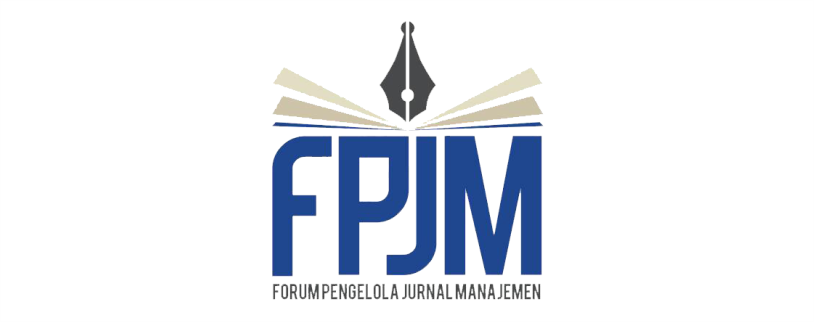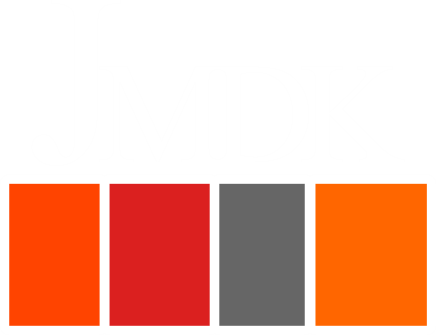The Effect of Artificial Intelligence (AI) on Human Capital Management in Indonesia
DOI:
https://doi.org/10.26905/jmdk.v10i2.9130Keywords:
Artificial Intelligence, Big Data, Deep Learning, Human Capital Management, Machine Learning AlgorithmAbstract
Human resources in an organization is the capital for the organization and its performance is the main indicator for the organization to achieve its goals. In the current digital era, the shift in human resources is demonstrated by the application of Artificial Intelligence (AI) to organizations in Indonesia, both in companies and in several government organizations. A company has a responsibility to its stakeholders to do the job and get the desired profit. However, no research specifically discusses the analysis of the influence of AI (Machine Learning Algorithm, Deep Learning and Big Data) on Human Capital Management in Indonesia. This study aims to determine the effect of artificial Intelligence (AI) on Human Capital Management in Indonesia. This sample of this study  is 85 respondents of organizational leaders and human resource managers (HR) in Indonesia. It can be concluded that adoption of Deep Learning and Big Data has a significant  positive impact on Human Capital Management.
Downloads
References
Akinyede, R. O., & Daramola, O. A. (2020). Neural Network Web-Based Human Resource Management System Model (NNWBHRMSM). International Journal of Computer Networks and Communications Security, 1(2013), 75–87. https://doi.org/10.47277/ijcncs/1(3)2
Bag, S., Dhamija, P., Pretorius, J. H. C., Chowdhury, A. H., & Giannakis, M. (2022). Sustainable electronic human resource management systems and firm performance: an empirical study. International Journal of Manpower, 43(1). https://doi.org/10.1108/IJM-02-2021-0099
Brazen, L. (2004). The ROI of Human Capital: Measuring the Economic Value of Employee Performance. AORN Journal, 80(6). https://doi.org/10.1016/s0001-2092(06)60696-0
Budiastuti, D., Bandur, A. (2018) Validitas Dan Reabilitas Penelitian. Jakarta: Mitra Wacana Media.
Caire, G., & Becker, G. S. (1967). Human Capital, A Theoretical and Empirical Analysis with Special Reference to Education. Revue Économique, 18(1). https://doi.org/10.2307/3499575
Clarke, M. (2008). Understanding and managing employability in changing career contexts. Journal of European Industrial Training, 32(4). https://doi.org/10.1108/03090590810871379
Endri. (2010). Peran Human Capital Dalam Meningkatkan Kinerja Perusahaan: Suatu Tinjauan Teoritis Dan Empiris. Jurnal Administrasi Bisnis, 6(2), 179-190
Hamilton, R. H., & Sodeman, W. A. (2020). The questions we ask: Opportunities and challenges for using big data analytics to strategically manage human capital resources. Business Horizons, 63(1). https://doi.org/10.1016/j.bushor.2019.10.001
Khatri, S., Pandey, D. K., Penkar, D., & Ramani, J. (2020). Impact of Artificial Intelligence on Human Capital Management in Malaysia. Advances in Intelligent Systems and Computing, 1016(January).
Leitner-Hanetseder, S., Lehner, O. M., Eisl, C., & Forstenlechner, C. (2021). A profession in transition: actors, tasks and roles in AI-based accounting. Journal of Applied Accounting Research, 22(3). https://doi.org/10.1108/JAAR-10-2020-0201
Lengnick-Hall, M. L., & Moritz, S. (2003). The impact of e-HR on the human resource management function. Journal of Labor Research, 24(3), 365-379 https://doi.org/10.1007/s12122-003-1001-6
Mahesh, B. (2020). Machine learning algorithms-a review. International Journal of Science and Research (IJSR).[Internet], 9.
Mariska, B. P., Prasetyo, Y., & Fadhilah, F. (2021). Perception and Prospective Analysis of Artificial Intelligence on Human Capital and its Impact on Human Resources in The Industrial Revolution Era 4.0. Enrichment: Journal of Management, 12(1), 146–151. https://doi.org/https://doi.org/10.35335/enrichment.v12i1.172
Mishra, C., & Gupta, D. L. (2017). Deep Machine Learning and Neural Networks: An Overview. IAES International Journal of Artificial Intelligence (IJ-AI), 6(2). https://doi.org/10.11591/ijai.v6.i2.pp66-73
Polak, P. (2021). Welcome to the Digital Era—the Impact of AI on Business and Society. In Society (Vol. 58, Issue 3). https://doi.org/10.1007/s12115-021-00588-6
Purnomo, M., Maulina, E., Wicaksono, A. R., Rizal, M., Program, D., Raya, J., Sumedang, B., 21, K. M., Jatinangor, K., Sumedang, K., & Barat, J. (2020). Analysis of the Use of Artificial Intelligence Technology on Digital Startups in Indonesia. Artificial Intelligence Technology on Digital Startups in Indonesia Article in International Journal of Advanced Science and Technology, 29(3).
Sari, I. P., Permana, F. C., & Firmansyah, F. H. (2020). Design of Digital Interactive Encyclopedia “Palembang Songket Decoration†as Media Education Introduction Wastra Indonesia. https://doi.org/10.2991/assehr.k.200321.048
Sharma, U., Tomar, P., Bhardwaj, H., & Sakalle, A. (2020). Artificial Intelligence and Its Implications in Education. https://doi.org/10.4018/978-1-7998-4763-2.ch014
Van Marrewijk, M., & Timmers, J. (2003). Human Capital Management: New Possibilities in People Management. Journal of Business Ethics, 44(2). 171-184 https://doi.org/10.1023/A:1023347715882
Yuhertiana, I. (2008). Paradigma Positivis : Sebuah Tinjauan Epistemologi Penelitian Ekonomi. E-Journal UPN Jatim.
Zeb, A., Hazana Abdullah, N., Javaid, M., & Asad Khan, M. (2018). Impact of Human Capital Management Practices on Employees’ Job Performance. Journal of Physics: Conference Series, 1049(1). https://doi.org/10.1088/1742-6596/1049/1/012020
Downloads
Published
Issue
Section
License
Authors who publish with this journal agree to the following terms:
(1)Â Copyright of the published articles will be transferred to the journal as the publisher of the manuscripts. Therefore, the author confirms that the copyright has been managed by the journal.
(2) Publisher of Jurnal Penelitian is University of Merdeka Malang.
(3) The copyright follows Creative Commons Attribution–ShareAlike License (CC BY SA): This license allows to Share — copy and redistribute the material in any medium or format, Adapt — remix, transform, and build upon the material, for any purpose, even commercially.












